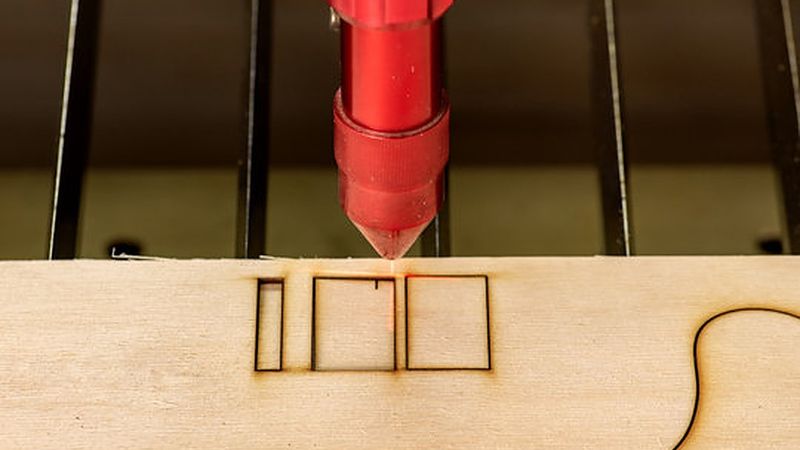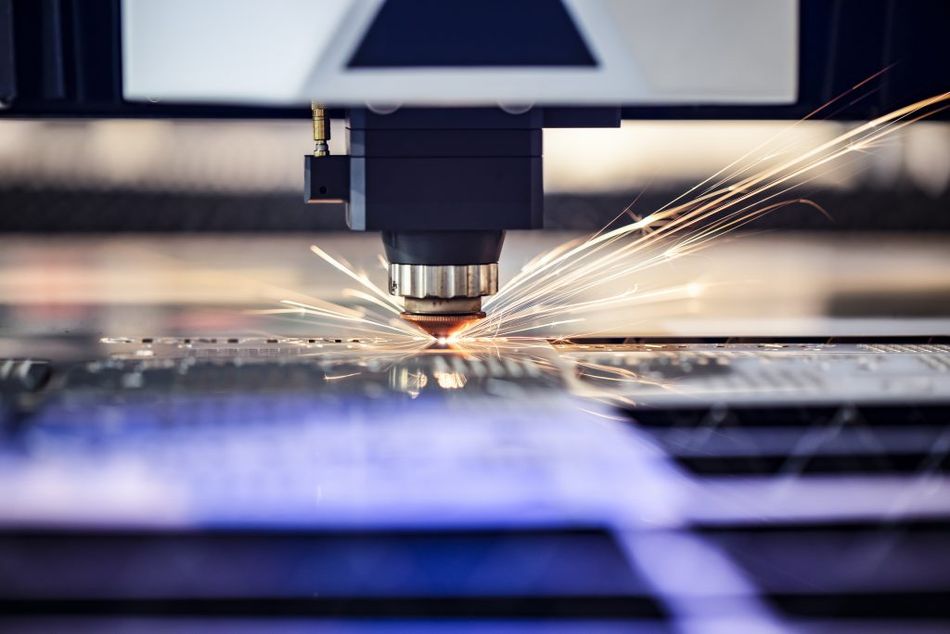What Is CNC Laser Cutting
Laser cutting is the process of using a laser beam to vaporize, melt, or otherwise gradually remove material. Computer Numerical Control (CNC) laser cutting commonly uses optics, an assist gas, and a guidance system to direct and focus the laser beam into the workpiece.
This article was first published on
prototypehubs.comLaser cutting is the process of using a laser beam to vaporize, melt, or otherwise gradually remove material. Computer Numerical Control (CNC) laser cutting commonly uses optics, an assist gas, and a guidance system to direct and focus the laser beam into the workpiece. The many benefits of CNC laser cutting include:
- Speed.
- Less waste.
- Broad Range of Materials.
Although laser cutting has been used industrially since the early 1970s, CNC laser cutting has recently become the production tool of choice in makerspaces, in schools, and with hobbyists.
How CNC Laser Cutting Works
Laser beams are generated by electrically exciting a lasing material. This beam is internally reflected and amplified inside its container with a partial mirror. Once it has generated enough energy to escape the container, it may be focused towards the workpiece. Three main types of lasers are used for CNC laser cutting:
- Carbon dioxide (CO₂)
- Neodymium-doped yttrium aluminum garnet (Nd:YAG, or YAG)
- Fiber
CO₂ and YAG lasers are similar in construction but are used differently. C0₂ lasers with lower power levels are used for engraving, while ones with higher power levels are used in industrial applications for welding and cutting because of their reasonably low price. YAG lasers, with their higher peak output, yield exceptional results for metal marking and etching. Fiber lasers, with their solid-state construction and high-power output, reduce consumable costs and effectively cut a wide variety of materials.
Why Use CNC Laser Cutting?
CNC laser cutting features:
- Faster processing and production times.
- Minimal warping.
- Greater accuracy when compared to flame or plasma cutting.
- More parts per sheet of material due to the laser beam’s small cutting diameter (kerf).
- Great for thing materials, but thicker and denser materials may be cut by replacing the collimating lens in order to change the laser’s focal point.
CNC laser cutting has many advantages over flame, plasma, and waterjet cutting methods. As the laser’s heat application is tightly focused, it requires less power and the material’s heat-affected zone (HAZ) is reduced. Many high-end industrial laser cutting machines are accurate to 10 micrometers and have a repeatability of 5 micrometers. CNC lasers can affordably cut and etch a wide variety of materials, even the non-metallic materials that typically cannot be cut by flame or plasma processes.
Choosing CNC Laser Cutting
With the rise of the maker, do-it-yourself (DIY), and hobbyist communities, CNC laser cutting continues to surge in popularity. The broad range of cutting capabilities and superior dimensional accuracy make CNC laser cutting an ideal manufacturing tool for end users. Read more about how CNC laser cutting could work for you on our Customized CNC Cutting Services page.


